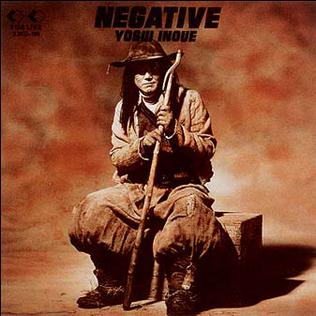
"Koi no Dance Site" is the eighth single of the J-pop idol group Morning Musume, released on January 26, 2000 as an 8 cm CD. It sold a total of 1,229,970 copies making it their second highest selling single and a number-two hit on the Oricon Charts. In 2004, it was re-released as part of the Early Single Box and again in 2005 as a 12 cm CD. The song also makes an appearance in the Japanese Nintendo DS game Osu! Tatakae! Ouendan.

Beni Arashiro is a Japanese R&B singer, who debuted in 2004 under the Avex Trax label. In 2008, Arashiro left Avex Trax and transferred to Universal Music Japan where she started to perform as simply Beni.

"Koi no Tsubomi" (恋のつぼみ / Bud of Love) is Koda Kumi's 31st solo under the Rhythm Zone label. It was the first single to bring in the new era after Best ~second session~. The single was released in CD and CD+DVD and charted at No. 2 on Oricon, selling over 140,000 copies in its first week and staying on the charts for twenty-one weeks. It became the highest selling song debut for a female artist, until Ayumi Hamasaki surpassed it with her single Blue Bird, which came out a month later on June 21.

"Koi Kana" (恋☆カナ) is the first opening theme song to the Japanese anime Kirarin Revolution. The song was released on July 12, 2006 and is performed by Koharu Kusumi from Morning Musume, credited as "Kirari Tsukishima starring Koharu Kusumi ".

"Meguru Koi no Kisetsu" is the second major single from the Japanese pop group Cute, released on July 11, 2007 on the Zetima label. The limited edition features a DVD with the PV.

Koi wa Groovy×2 is the twelfth single by Yuna Ito. The single was released on November 26, 2008, two months after her previous single Miss You. To date, this is the lowest charting single of Ito's career.
Yume o Mikata ni/Koi Kogarete Mita Yume (夢を味方に/恋焦がれて見た夢) is the 11th single from Ayaka. It was released on April 22, 2009. It peaked at 6 on the Oricon Charts.

"Mō Ichi do..." is a double-A side single released by artist Dohzi-T. The main song is a collaboration song with Beni. The song sold over 2,000,000 ringtone downloads and was later released as a single. The single managed to reach the number seven spot weekly on the Oricon ranking and was a long charting hit selling over 80,000 copies. The single is ranked as #93 on the yearly Oricon chart.

Negative is the 13th studio album by a Japanese singer-songwriter Yōsui Inoue, released in December 1987.

"Koi o Shichaimashita!" is the sixth single by Morning Musume subgroup Tanpopo. It was released on February 21, 2001 on the Zetima Records label. The single features the group's "second generation" line-up of Ai Kago, Rika Ishikawa, Kaori Iida and Mari Yaguchi. The first press edition contained a limited-edition trading card.

"Sign" is Beni's sixth single under the label Nayutawave Records. The leading song contains a sample of the piano from Yumi Matsutoya's 1994 song "Haru yo, Koi". The first press bonus will include a BENIxMURUA collaborative interchangeable jacket and for a lucky group of fifty, they will be awarded with a BENIxMURUA collaborative T-shirt. The single charted at the weekly spot #50 and sold 1,596 copies.
Fuyumi Sakamoto is a Japanese female enka singer under EMI Music Japan.

"Yura Yura/Gimme Gimme♥" is Beni's eight single under the label Nayutawave Records. The song "Yurayura" is about the "wavering feelings you have after a break and how you want to move on", the song is supposed to be the new signature song. "Gimme Gimme" is the new Kao Biore Body Deli commercial song and is about "confessing your feelings to the one you love".

"Suki Dakara" (好きだから。) is Beni's eleventh single under the label Nayutawave Records. "Suki Dakara" is a "sad love song that paints a love that you don't give up on even though it may be hard and it hurts." The song is said to be similar to her previous released songs "Mō Nido to..." and "Koi Kogarete" Both songs were later added on Beni's 7th album "Fortune".

"Koi wa Owaranai Zutto" is a song recorded by Japanese singer Misia. It was co-written by Misia and Jun Sasaki and produced by Misia. "Koi wa Owaranai Zutto" was released as a single simultaneously with the Tour of Misia Japan Soul Quest concert DVD on June 20, 2012, through Ariola Japan. The title track served as theme song for the NHK drama series Hatsukoi, starring Yoshino Kimura.

Koi ni Ochiru Toki is the Japanese debut studio album of the South Korean boy band Infinite. It was released on June 5, 2013 in two different editions. The album is the first audio-related release of the group under Universal Music Japan's sublabel Universal D.
Koi ni Nare... is the 26th single and the last single by Japanese pop singer and songwriter Miho Komatsu under Giza studio label. It was released 7 December 2005. The single reached #39 in its first week and sold 4,258 copies. It charted for 2 weeks and sold 4,931 copies. The single has the lowest rank chart in Oricon in her career.

The discography of Japanese-American musician Beni consists of eight studio albums, two compilation albums, six live albums and three cover albums and twenty-six singles. Beni debuted in 2003 as a member of the Pony Canyon idol group Bishōjo Club 21 under the name Beni Arashiro, and in 2004 made her solo debut with Avex Trax.

"Hachigatsu no Koi" is the 13th single by Japanese singer/songwriter Chisato Moritaka. Written by Moritaka and Kyōhei Tsutsumi, the single was released by Warner Pioneer on June 25, 1991.















